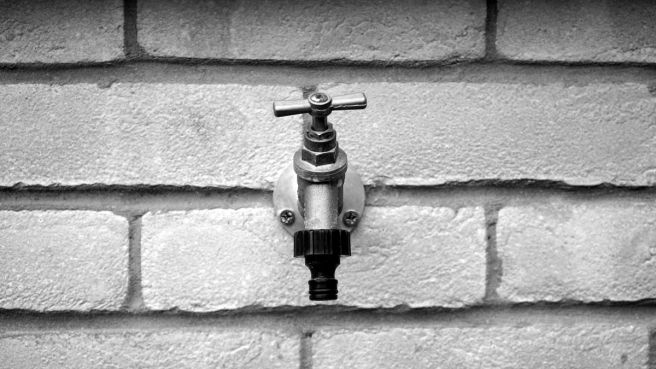We can all agree that winter brings with it many particularly stressful situations that we have to contend with. December arrives and all we can think about is decorating for Christmas, holiday baking, and finding the perfect gifts. Once the holidays are over, we give a quiet sigh of relief realizing we've finished all of our holiday errands and we can take a quick moment to relax. But the worrying doesn't stop there. When temperatures start to drop below 32 degrees, we once again need to start worrying about shoveling, icy conditions, and winter commutes. Though, the list of issues isn't just limited to the outside world.
Freezing temperatures induce the expansion of water in your pipes. For the pipes, the strain becomes too much and they suddenly burst. Bursting pipes can be scary but here at Keystone-Deibler Straub & Troutman we have a few tips to help catch the problem before it gets too bad and prevent the problem from happening in the first place!
What are the warning signs of a burst pipe?
1. The nose knows
Normally you can sense a burst pipe when the sewage is not being properly transferred through your home's pipes. This will result in odd odors in the sinks, drains, and a few other places. Smelling something moldy or foul in your bathroom could be an indication of a leaking or bursting pipe.
2. Investigate
Take a look around your home. Consider soggy ceiling tiles or drywall. Does the floor contain puddles of water? Are any of the walls or structures discolored? All of these may be symptoms of a burst pipe in your home.
3. Be all ears
There are a few things you can listen for. You can hear banging clunking, whistling or even bubbling while flushing the toilet or using the shower. These may also be indications of a pipe burst.
4. Sweat the small stuff
When using appliances in your home, you may feel little to no water pressure. This includes your dishwasher, washing machine, and any faucet inside your home Don't just blow it off thinking it's nothing serious! If you notice that your toilet is clogging more than normal or that your water bill is a little higher than usual, these might also be some signs of a burst pipe so don't overlook the signs!
What can you do to help prevent a burst pipe?
Even though your homeowners insurance could help cover costs if a pipe bursts, it's still a good idea to take the appropriate steps to help avoid pipe bursts in your home.
1. Insulate your pipes
Many hardware stores offer foam insulation. Wrap foam insulation around your pipes to help guard your pipes against freezing. Other options include heat tape or heat cables which are controlled thermostatically.
2. Caulk ‘em up
Look if there are any air holes inside your home to keep out as much air as possible. This includes windows, vents to the dryer, electrical wiring, and pipes. To plug the air leaks, use a caulk gun to allow cold air to remain out.
3. Going out of Town?
Make sure to keep the heat on when going out of town. To save money you can turn it down a little, but the money you save from turning it down won't even compare to the sum you'll save from covered pipes!
4. Close the garage door
When you leave open the garage door it allows for cold air to seep into your walls and pipes. Close your garage door to keep the walls warmer!
5. Let the heat flow
When you leave your interior doors open, heat flows more efficiently through the house. This will allow the heat to get closer to the pipes, reducing the risk of them freezing.
6. Drip Drip Drip
High water pressure can cause your pipes to burst! When you allow your faucet to drip a little, pressure remains low in pipes due to water flow.
Now you're aware of a few of the measures you can take to help prevent and spot a burst pipe. Lucky for you, if you do find yourself with a burst pipe, your homeowners insurance could help! Here at Keystone-Deibler Straub & Troutman we are proud to be serving the Central PA region including the Elizabethville, Halifax, Millersburg, Upper Dauphin, Line Mountain areas. Give us a call, we're here to help!

